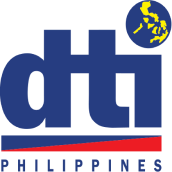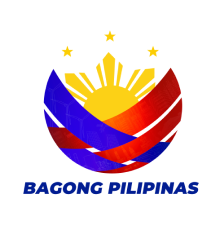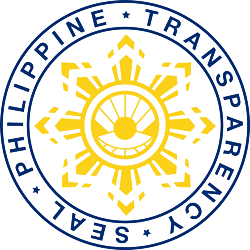Overview of Certificate of Origin (CO)
Definition of CO
A Certificate of Origin (CO) is an international trade document confirming the origins of goods in a particular shipment have been wholly obtained, produced, manufactured or processed in a certain country.
A Certificate of Origin refers to the document issued by a competent authority certifying that a particular product conforms to the origin requirements.
Importance of CO
The CO is essential for achieving the free flow of goods across ASEAN, a key element in establishing a single market and production base, thereby supporting the deeper economic integration of the region and contributing to the realization of the ASEAN Economic Community (AEC).
It serves as a vital document for verifying the origin of goods, ensuring compliance with trade regulations, and enhancing trust between trading partners by providing transparency and accuracy in the declaration of goods' origins. For traders from countries with trading agreements with the Philippines, the CO is critical for availing preferential tariff exemptions and rates, thereby strengthening their competitive position in the regional market by granting access to trade benefits under various agreements.
Beyond tariff preferences, the CO also supports broader regional goals by making trade more efficient and transparent. It helps achieve ASEAN's goals for better integration and cooperation.
Types of Certificates of Origin (CO)
Issued for goods subject to reduced tariffs or exemptions and tend to be associated with Regional Trade Agreements
Also known as “Normal COs” for goods which are not subject to preferential treatment
Issuing Modality of COs
The system of the Customs Authorities shall carry out verifications of the originating status of the good upon request. Verification can be made based on the documents submitted by the requestor.
VIEWThe system will let the Philippine certified exporters to submit a Self-Certify Certificate of Origin to the Customs Authorities or its equivalent unit. The custom authorities or its equivalent unit shall monitor the proper use of the authorization, including verification of the correctness and authenticity of the Certificate of Origin.
VIEWRules of Origin Criteria
ATIGA
Rules of Origin Chapter 3 of the Agreement
Product-Specific Rules of Origin Annex 3 of the Agreement
PSR Year HS 2022
ASEAN-China FTA
Rules of Origin Annex 3 of the Agreement
Product-Specific Rules of Origin Annex 3 of the Agreement
PSR Year HS 2017
Philippines-Japan EPA
Rules of Origin Chapter 3 of the Agreement
Product-Specific Rules of Origin Annex 1 of the Agreement
PSR Year HS 2002
ASEAN-Japan CEPA
Rules of Origin Chapter 3 of the Agreement
Product-Specific Rules of Origin Annex 2 of the Agreement
PSR Year HS 2017
ASEAN-Australia-New Zealand FTA
Rules of Origin Chapter 3 of the Agreement
Product-Specific Rules of Origin Annex 2 of the Agreement
PSR Year HS 2017
ASEAN-India FTA
Rules of Origin Annex 2 of the Agreement
Product-Specific Rules of Origin Annex B of the Agreement
PSR Year HS 2012
ASEAN-Korea FTA
Rules of Origin Annex 3 of the Agreement
Product-Specific Rules of Origin Annex 3 of the Agreement
PSR Year HS 2017
Philippines-EFTA FTA
Rules of Origin Chapter 1 of the Agreement
Product-Specific Rules of Origin Annex 1 of the Agreement
PSR Year HS 2022
ASEAN-Hong Kong FTA
Rules of Origin Chapter 3 of the Agreement
Product-Specific Rules of Origin Annex 3-2 of the Agreement
PSR Year HS 2017
RCEP
Rules of Origin Chapter 3 of the Agreement
Product-Specific Rules of Origin Annex 3A of the Agreement
PSR Year HS 2022
Confirmation of FTA Utilization Requirements in the FTA Agreement
Ensure that the origin of the preferential goods is recognized as our country or the contracting party according to the origin determination criteria set by the agreement and by each product.
Confirm whether the transaction is between exporters and importers located within the territories of the contracting parties.
Confirm whether the preferential goods were directly transported from the exporting party to the importing party without passing through a non-party country.
Confirm whether the preferential goods correspond to the goods specified for concession in each agreement.
Ensure that a valid Certificate of Origin is obtained and that the procedures set forth in the agreement, such as the application of preferential tariff rates, are met.
Confirm whether the goods have undergone sufficient processing within the region to effect a substantial transformation.
Confirm whether the production, manufacturing, or processing of the preferential goods is carried out continuously within the territory of the contracting parties.
Comparisons of Issuing Modality of CO by FTA
| Classification | EFTA | ASEAN | INDIA | RCEP | KOREA | HONG KONG | JAPAN | AUSTRALIA NEW ZEALAND |
CHINA |
|---|---|---|---|---|---|---|---|---|---|
| Issuing Modality CO |
Self-Issued | Authority-Issued | Authority-Issued | Self-Issued/ Authority-Issued |
Authority-Issued | Authority-Issued | Authority-Issued | Self-Issued | Authority-Issued |
| Issuer | Exporter | ASEAN(Government Authority), PH(BoC) |
India(Export Inspection Council), PH(BoC) | Exporter, Producer, issuing body of the exporter | Korea(Customs/ KCCI), PH(BoC) | HK(Customs/TID), PH(BoC) | PH(BoC), JAPAN(JCCI) ASEAN(Government Authority) | Exporter, Producer | China(GAC, CCPIT) PH(BoC) |
| Form of Certificate |
Invoice Declaration | Form D | Form AI | Form RCEP | Form AK | Form AHK | Form PJ Form AJ |
From AANZ | Form E |
| Validity Period(yrs) |
1 | 0.5 | 1 | 1 | 1 | 1 | AJCEP : 1 PJEPA : 0.5 |
2 | 1 |





